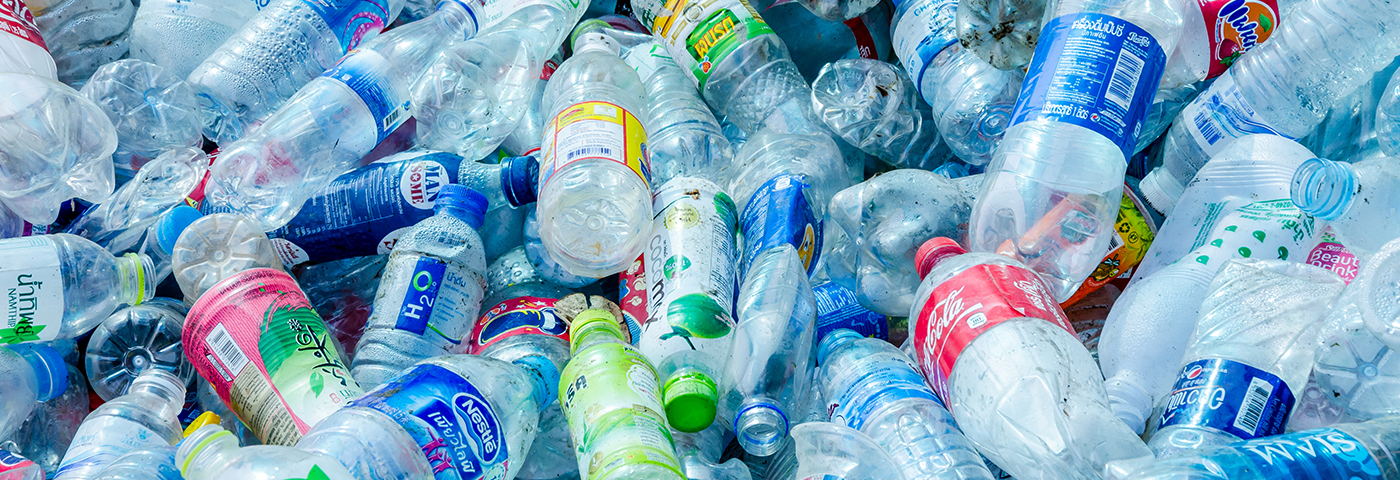Today is World Environment Day, and the theme is Beat Plastic Pollution. We’ve looked at this issue before, but so rapidly are the responses emerging, that it is worth revisiting and collecting together examples from the different sectors in this industry. Where 12 months ago companies stood out for acting, it feels that momentum is shifting fast and the focus could soon be not to commend those that are acting, but to point out those that are not.
Hotels
Akrya Sukhumvit Bangkok opens later in 2018 and claims it will be Asia’s first plastic free hotel. Although the claim may be challenged by other smaller companies, the hotel appears to be walking the talk. Stainless steel water bottles are handed to guests on arrival, and drinking water refills are available on every floor. All toiletries are kept in locally manufactured celadon containers. Bio-degradable bin bags are used in the rooms and shopping bags can be borrowed from the wardrobes.
In Europe, meanwhile, the Gecko Beach Club on Formenterra has committed to going plastic free this year, with all plastic replaced with biodegradable options and employee uniforms being redesigned using upcycled fishing net by an ethical fashion brand called ECOALF.
Just to single these hotels out is increasingly unfair, as a short amount of web searching shows countless local news stories of hotels committing to go plastic free as fast as possible. For those still worried about how best to remove plastics from their supply chain, however, Travel Without Plastic has used their 30+ years of health, safety and sustainability auditing experience in hotels to provide a comprehensive plastic reduction guide for hoteliers and other accommodation providers.
Destinations
Just as many hotels are hurrying to rid them themselves of plastic, do too are destinations, and for efforts really to have any impact, it is at this level that changes have to come. I reported on the Refill My Bottle initiatives emerging across South East Asia in my previous blog. And there are plastic free schemes from the Himalayas to the Red Sea. Kenya has banned plastic bags altogether, with anyone found using, producing, or selling a plastic bag facing up to four years in jail, or a $38,000 fine. In March 2018, Malibu voted to ban the sale and use of single-use plastic straws, stirrers, and plastic cutlery beginning this month. There are several other similar schemes and pledges, but with new ones being announced every month, it can be hard to keep track.
Tour operators
UK-based Responsibletravel.com have launched a ‘NO SINGLE USE PLASTIC HOLIDAYS’ section. According to their website: “For a trip to appear in our ‘No single use plastic’ section you must not find single use plastic in the room in your accommodation, on transport organised by the tour operator or restaurants included in the itinerary. Same goes for organised activities.”
Meanwhile the Adventure Travel Trade Association is focussing on this issue through 2018 and is gathering data and raising awareness through its platforms and events, while “collaborating with industry partners to develop programs offering a variety of solutions for businesses who are interested in eliminating plastics.”
Events
Later this month the annual Mekong Travel Forum takes place, this year in Nakhon Phanom on the Laos border of Thailand. As well as a 90 minute session dedicated to exploring how tourism can best address this issue, every delegate will receive a plastic free travel kit with reusable water bottle, biodegradeable straw, and a lanyard made out of recycled cardboard by local villagers.
—-
One of the key themes of the responsible tourism programme this year at World Travel Market is plastic pollution. More will be announced soon.


